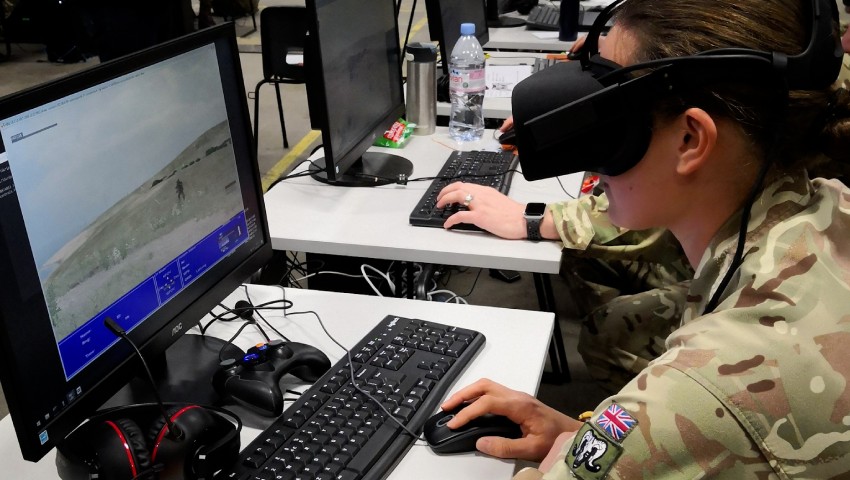The US Army has subcontracted Bohemia Interactive Simulations (BISim) via Cole Engineering Services Inc. to deliver significant components of next generation collective training technology.
Key aspects of the contract will be delivered by BISim’s Australian business, Bohemia Interactive Australia, based in Newcastle in the Hunter Region of NSW, with the business doubling its engineering workforce and providing potential interoperability benefits to the Australian Defence Force.
CESI recently announced it had been awarded the Training Simulation Software/Training Management Tools (TSS/TMT) contract and plans to utilise all three of BISim’s primary products (VBS4, VBS Blue IG and VBS World Server) as part of the overall TSS/TMT solution.
The US Army’s Synthetic Training Environment (STE), of which TSS/TMT supplies the central software capabilities, is expected to allow units and leaders to conduct realistic, multi-echelon and multidomain combined arms manoeuvre and mission command, live, collective training anywhere in the world.
TSS/TMT could also converge live, virtual and constructive capabilities in a single, easy-to-use interface.
BISim first began working with the US Army on the STE-related programs in 2016 and, as prime contractor working with Cole Engineering Services (CESI) and 4C, developed a prototype for a cloud-enabled, virtual world training capability under the OTA1 contract in 2018.
According to Arthur Alexion, BISim CEO, the company has invested tens of millions of dollars in upgrading and modularising its technology in anticipation of STE-type requirements.
"VBS4 already supports all of the Army’s Games for Training capabilities, representing over one hundred US Army-specific training uses,” Alexion said.
“We are excited to bring BISim’s products and technical expertise in support of prime contractor CESI to jointly deliver the US Army’s next generation of virtual combat training technology in 2025.”
More than 500,000 military personnel are trained every year using VBS software products built by the global developer of advanced military simulation and training software.
Military leaders and instructors will be able to set up complex virtual battles, co-ordinating with thousands of AI-powered allies, and fighting against artificially intelligent or instructor-controlled adversaries, with realistic AI behaviours and at theatre-wide scale.
Soldiers will be able to repeat these training missions many times over, facing new challenges that will help them to better prepare for live training and enhance their readiness for operations.
More than 60 NATO and NATO-friendly countries and over 300 integrators/prime contractors use VBS technology, many making significant funding commitments to extend VBS product capabilities.
VBS products have become the world’s most widely used COTS product range in the military simulation sector, BISim customers include the Australian Defence Force, US Army, US Marine Corps, Swedish Armed Forces, French MoD and UK MoD and most major integrators.
This commonality between Australia and its major security partners can ensure greater levels of interoperability in simulation training between respective militaries.
The local project opportunity to deliver this capability to US forces will generate up to 15 new, skilled jobs in the Hunter region according to Bohemia Interactive Australia’s managing director, Ryan Stephenson.
“Our small team of Australian-based software and engineering experts will help to deliver this capability, which will be critical to ensuring the training and readiness of the US Army for future combat and operating scenarios,” Stephenson said.
“This contract provides a through-life benefit for our Australian customers, as capability improvements made under international contracts like this are translated into software updates to products in service with the Australian Defence Force.
"This contract will help build Australian sovereign capability in simulation training programs and bring interoperability benefits for the Australian Defence Force, who already operate a version of our VBS software.”
[Related: US Navy awards LCS contract to Austal]



